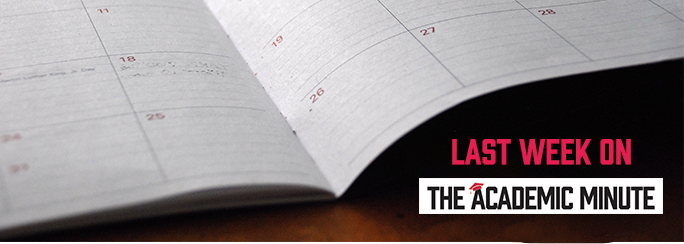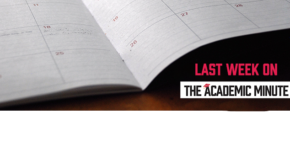
The Academic Minute from 9.09 – 9.13
Monday
Megan Brandow-Faller – Georgetown University
Child Creativity From Secessionist Vienna to Postwar America
Megan Brandow-Faller is Professor of History at the City University of New York Kingsborough and also teaches at the CUNY Graduate Center and the 92nd Street Y. Her research focuses on art and design in Secessionist and interwar Vienna, including children’s art and artistic toys of the Vienna Secession; expressionist ceramics of the Wiener Werkstätte; folk art and modernism; and women’s art education. She is the editor of Childhood by Design: Toys and the Material Culture of Childhood, 1700-present (Bloomsbury 2018) and the author of The Female Secession: Art and the Decorative at the Viennese Women’s Academy (Penn State University Press, 2020) and co-editor (with Laura Morowitz) of Erasures and Eradications in Modern Viennese Art Architecture and Design (Routledge, 2022). Brandow-Faller contributed two catalogue essays for the retrospective exhibition Die Frauen der Wiener Werkstätte at Vienna’s Museum of Applied Arts (2021). Her newest project, Child Creativity in the Visual Arts from Secessionist Vienna to Postwar Vienna (Bloomsbury Academic, 2025) focuses on the dissemination and popularization of Secessionist ideas of child creativity in postwar America.
Tuesday
Mark Rank – Washington University in St. Louis
Luck and Economic Success
Mark Robert Rank is widely recognized as one of the foremost experts in the country on issues of poverty, inequality, and social justice. To date he has written 10 books on a range of subjects, including an exploration of the American Dream, a new understanding of poverty and inequality, and the role of luck and chance in shaping the course of our lives. His most recent book is entitled, The Random Factor: How Chance and Luck Profoundly Shape Our Lives and the World Around Us. In addition, he has published numerous articles in academic journals across a wide variety of fields.
Wednesday
Christina Cliff – Franklin Pierce University
How Conspiracy Theories Have Migrated to the Mainstream
Christina Cliff is an associate professor of political science and security studies at Franklin Pierce University in Rindge, N.H., where she teaches courses in political violence, international relations, U.S. foreign policy, comparative politics, the American presidency, global security and diplomacy, among other topics.
Her research areas also include the study of extremism, political violence, terrorism, disinformation, diplomacy and weapons of mass destruction.
Thursday
Helen Choi – University of Southern California
Because You Can, Should You?
Helen Choi is a Senior Lecturer in the Engineering in Society Program at the University of Southern California. She teaches courses in writing, communication, and information literacy, and she studies how Wikipedia writing can enhance ethical awareness among engineering students.
Friday
Kathryn Robinson-Tay – Washington State University
Trust and Autonomous Vehicle Acceptance
Kathryn Robinson-Tay is a third-year PhD student studying science and risk communication in the Edward R. Murrow College of Communication. Her research focuses primarily on how institutional and interpersonal trust affect risk perceptions of emerging technologies, especially those on which people might not have a strong foundation of knowledge. This work has focused particularly on self-driving cars and other forms of artificial intelligence. Her research interests also include science and risk communication with rural populations, especially on topics like climate change, energy policy, and environmental health risks. Within these research interests, Kathryn is interested in centering community understanding and sense-making through respectful dialogue, critiquing knowledge deficit assumptions and challenging traditional hegemonic science communication practices. Teaching is Kathryn’s main passion, and classes she has taught include Public Speaking at Washington State University.

